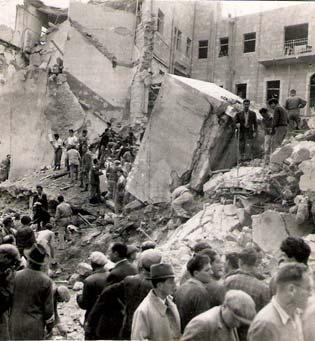
Jerusalem, February 22, 1948
Dearest Family,
I was awakened by a shattering explosion at 6:45 a.m. this morning, turned over and dreamed the noise into a restless dream. Then, the awareness that it was real hit me full blast. I hopped out of bed, pounded down the stairs to the telephone and got through to a friend who was in such a state of shock she could hardly tell me what had happened.
It seems the British, or Arabs dressed in British uniform, drove up in three lorries filled with explosives which they set off in the center of Jerusalem's downtown section, Ben Yehudah Street, the busiest and liveliest street in town. This, at an hour when people go to work or are still at home, in an area crammed with crowded apartments, office buildings and shops.
Everyone coming from town assures me that it's better to stay home because you can't get within a yell of the place and only interfere with efforts to clear the debris and find survivors. No way of knowing yet the number of casualties. [It was reported later that there were over fifty dead and some hundred and seventy wounded.]
Later the same day...
I went to town this afternoon. What devastation! What destruction! Even several blocks away on King George V Street the roofs are a shambles, entire store fronts are blasted away and the streets are a mass of glass and debris. Standing in the middle of one pile was my grocery man, collecting mazal tovs for being alive. Not a window, not a sign, not an undamaged building in the entire area. It is frustrating to think that these are the very same windows and the very same buildings that were repaired barely two weeks ago after the blasting of the press room of The Palestine Post, not three blocks away.
Every main street, with the exception of two blocks on Jaffa Road, is cut off to the public by the linked arms of Mishmar Haam, volunteer Jewish Home Guard units, who form a cordon to protect the stricken area. This is one day when British soldiers and policemen scarcely showed themselves in the streets of the city. They would have been attacked by mobs of furious people. I might have been among them myself.
What kind of a crazy war is this? Who are we fighting? Who is neutral? Who is on our side? How much provocation are we supposed to take before retaliating? We know the price of paying back, but how long can it restrain us? We are like sitting ducks in a shooting gallery. And there is so little we can do about it. Not even permitted to protect ourselves. The people who live here have superhuman guts and patience to absorb blow after blow – from the Arabs, from the British, from all sides. I know that on shmirah (guard duty) tonight I'll be gripping the Sten gun just a little bit more firmly, for it is events like this that ignite the kind of burning anger which can transform even a peace-loving person into a fighter, a soldier
Jerusalem is very small, so that anything that hits, hits everything indiscriminately – residential, commercial areas, hospitals and schools. If you glance at a map of the city you'll notice that Jerusalem proper, the new city, is only ten or twelve blocks in circumference.
It is bounded to the south by "Bevingrad," – nick-named after Britain's Foreign Secretary Ernest Bevin. This is a huge compound encircled by barbed-wire, containing not only all the important British administration offices, police headquarters, the courts, the prison, hospital, banks, the broadcasting station but also the Jewish commercial area, the Arab sector and the General Post Office, which services everybody.
To the west is Rehaviah, a lovely residential quarter, where the Jewish Agency building is located. To the north is Mahane Yehudah, the less affluent part of the city where there is a bustling marketplace that overflows into the orthodox and ultra- orthodox communities. Continuing further in this direction, is Romema, a mixed Jewish/Arab sector -- previously predominantly Arab -- and then round the bend is Kiryat Moshe, New Montefiore, where we live and Bet Hakerem, where other student quarters are
Spread out behind Kiryat Moshe there are two Arab villages, Deir Yassin and Lifta and the Jewish suburb, Givat Shaul.
We are actually closer to the center of the city than our house on 83rd Street is to Times Square. Only passing through Romema on the bus – at least until recently – was a nerve-racking hit-or-miss affair, spiked by snipers. It bore no resemblance to a Fifth Avenue bus ride.
Strategically we are more or less safe. The only thing we have to fear is an out-and-out full-scale attack by the Arabs which isn't likely because they know how strong and united we are and we know their every movement. I am stressing the geography so that when you read disturbing and frightening news about Jerusalem, you should realize that the city is made up of a hundred or more suburb-like communities and, at this stage, only some of them are under constant or sporadic fire. It doesn't necessarily mean that we students are in the thick of things all the time.
Jerusalem is a difficult city to live in and to protect. The Jewish sections are not exclusively Jewish, nor the Arab sections entirely Arab, nor the British zones strictly British. The hardest part is getting about from one section to another and trying to protect the Jewish inhabitants who happen to live in a mixed section. And a major overall problem is to protect ourselves from the British who are free to come and go as they please.
Jewish Home Guard roadblocks can stop and examine a car or a truck that looks suspicious but they cannot intercept a British army or police vehicle, even if there were proof positive that it contained explosives destined for detonation in a Jewish area. And that's the background on how The Palestine Post building and Ben Yehudah Street got bombed.
All my Love,
Zippy.
From the book, “Letters from Jerusalem 1947-1948”, by Zipporah Porath. To mark Israel’s 60th Anniversary, signed copies of the book (also available in Hebrew) can be ordered from the author. Contact: zip@netvision.net.il or Tel/Fax: 03-635-1835.
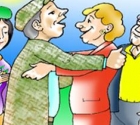 The Bereavement & Loss Program
The Bereavement & Loss Program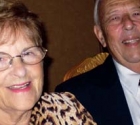 Thank You Eddie
Thank You Eddie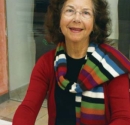 Save One Life, Save A World
Save One Life, Save A World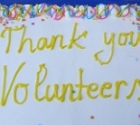 A new website in English - on Volunteering - Launched in Israel
A new website in English - on Volunteering - Launched in Israel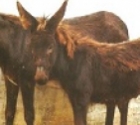 Help Needed for Abused Horses and Donkeys
Help Needed for Abused Horses and Donkeys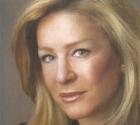 Heather's Heseg
Heather's Heseg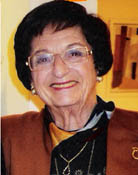 Zipporah Porath
Zipporah Porath